by Jana Cavojska
Veronka, Pavlinka, Andrejka, Simonka, Denis, Kerem, Misko, Renko and Nikolas are preparing sandwiches. Slices of bread should be spread with butter and layered with salami and cheese.
Children’s hands are working consistently and their heads calculate math tasks. How many slices of bread are needed for eleven sandwiches? How many pieces of salami for one? How many together? The same with cheese. They can invent so many tasks with sandwiches. Add, subtract, multiply, divide. When the sandwiches are done, the pupils also finish the math class.
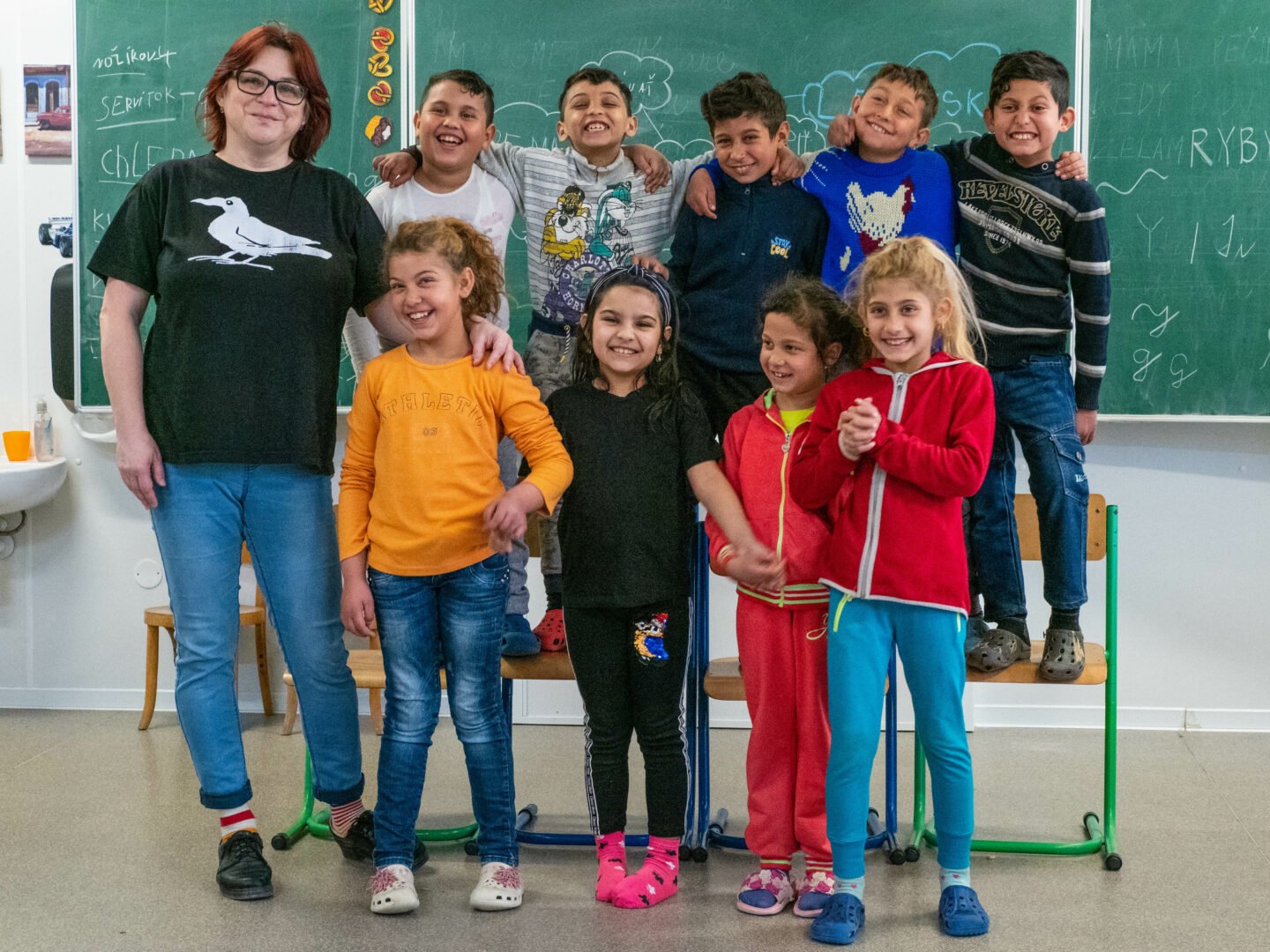
Children from the segregated Roma settlement called Rubanka in Muranska Dlha Luka calculate with slices of bread much more difficult tasks than second year pupils usually do. This is how Monika Podolinska teaches in her class.
Limited vocabulary
For Roma kids from poor communities, it was hard at school even before the coronavirus pandemic started. In simple houses there is hardly any place or peace for homework. Many families live without electricity, even more don´t have running water. “They usually speak the language Romani at home,” Monika Podolinska explains. “That’s why children don’t speak Slovakian properly when they start school. Their vocabulary is limited too.”
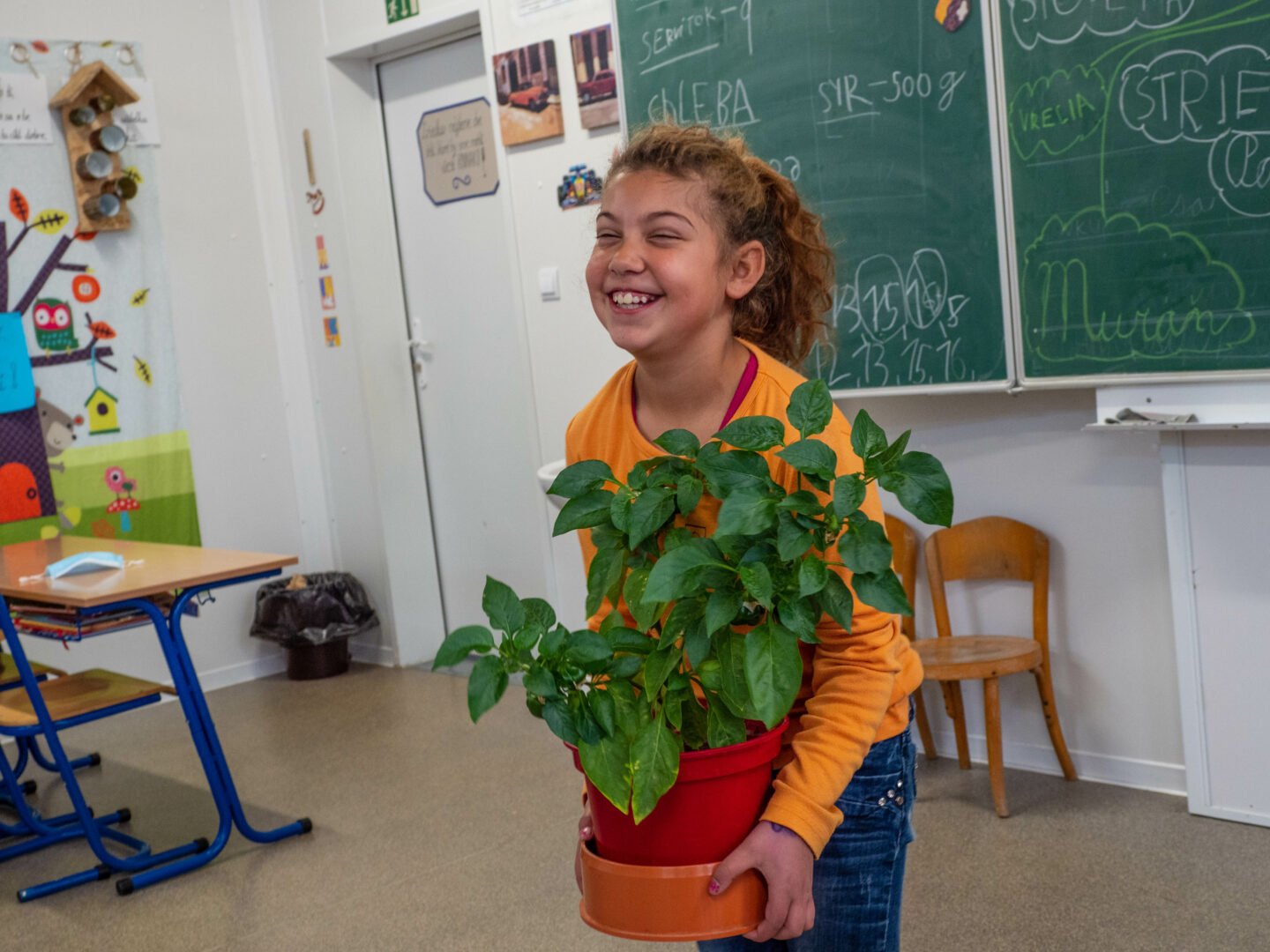
The reason for it is simply because they have never seen many of items which are common to us. Crayons. Hotel. Train. Castle. Children´s room. Restaurant. Jungle. Museum. Square. Universe. Parents from poor Roma settlements teach their kids rather practical things: cut wood, cook, take care about younger siblings.
Monika realized that what her pupils miss the most are experiences. And maybe breakfast. When sandwiches are ready, she eats hers together with her pupils. While eating, they can speak about the world. Children have lots of questions. They eat and don´t even realize they are learning.
Cooking and learning
Monika likes to cook with her pupils.
By cooking, kids can learn not only new words in Slovakian but also to keep hygiene, to count or to compile a budget. Pupils grow vegetables next to the school building and take care about the plants.
In autumn, they prepare sour cabbage. Before Christmas they make sausages and cook a traditional Christmas cabbage soup with sausages.
With her pupils Monika often travel to the nearest town, Revuca. “We visit the museum, gallery or restaurant.” It is uncommon for Roma families usually to go out for trips. Sometimes Monika takes her kids to her house or to her mother´s place which is at the eight floor so they have to use an elevator – which is another new experience for the kids. And on their birthday Monika invites child and its mother to a coffeehouse for coffee and cake. For many of the Roma children it is one of the rare moments, when they have their mother only for themselves.
Homeschooling without electricity
In early April, the pupils returned to school after almost three months. Due to the coronavirus pandemic, schools in Slovakia had to be closed, some students are on homeschooling for almost a year. When Monika’s school in Muranska Dlha Luka was closed, she realised that distant internet lectures will be impossible, because some of her pupils don’t have even electricity. Therefore, she prepared paperwork and distributed it to the families. Later she started to visit the kids at home. “It was nice, mothers often prepared breakfast or lunch for me. But then, several people from settlement got infected with the coronavirus, so I had to stop home visits.” She bought them smartphones and stayed in touch with her pupils by phone calls.
Now the situation with corona is better in Rubanka and it is possible to visit families like the one of Pavlinka. They live in a simple little makeshift house with two rooms and without electricity. As the whole settlement, also their house is built on illegal land: the common problem of Roma settlements in Slovakia.
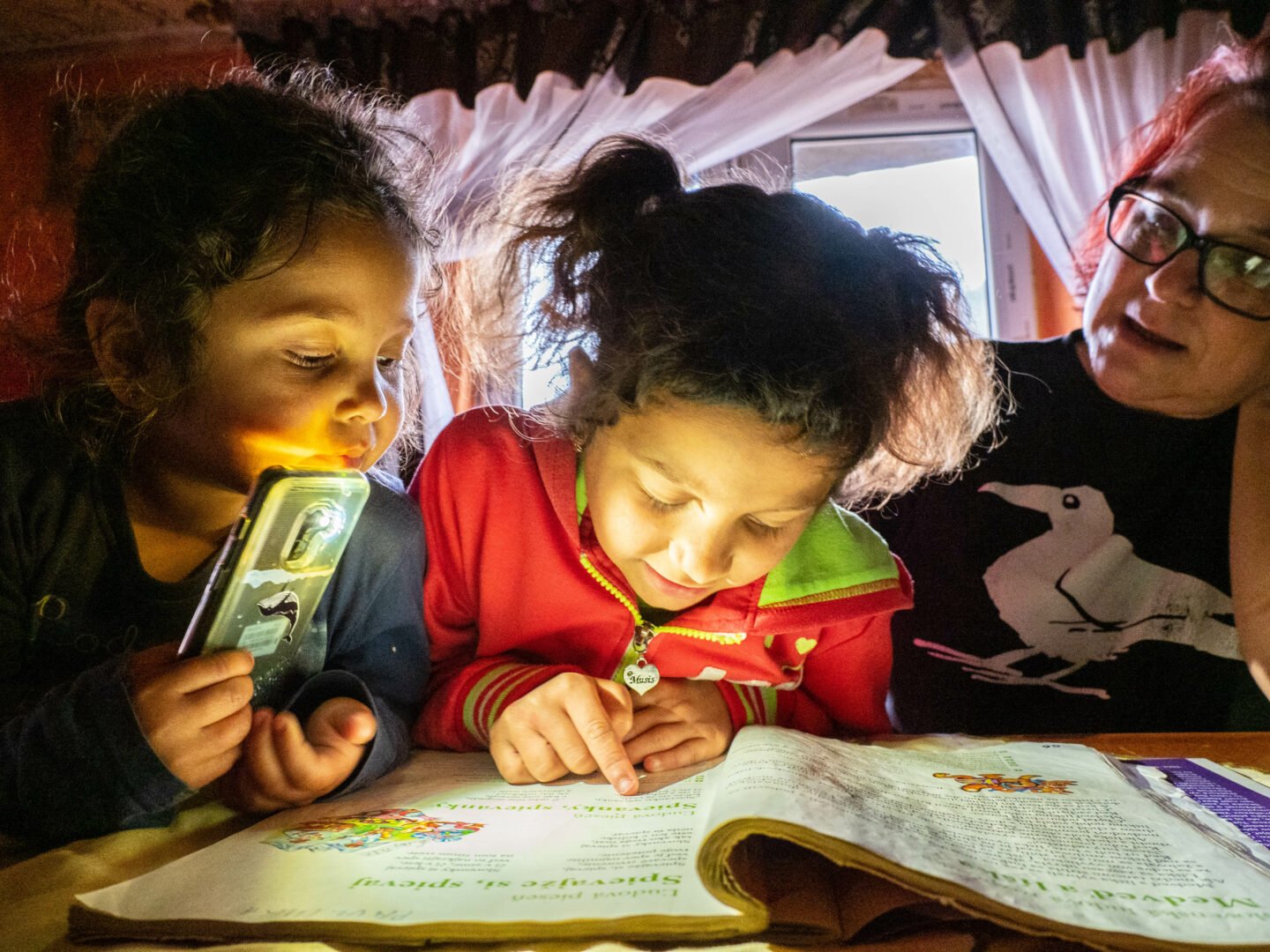
Not only Pavlinka, but also her brother Ivan and her four years old sister Nelinka are interested in the schoolbooks. Monika explains how to work. After a short introduction, Pavlinka reads and writes. Because it is dark in the kitchen without electricity, Monika sets light on the book with her smartphone. Receiving education in such circumstances, Pavlinka has more benefits than many other children in Slovakia.
According to a research of the Institute of educational politics, 128,000 children do not have any access to distant online education during the pandemic. It makes 18,5% of students of elementary and secondary schools. 52,000 of them didn´t get even paperworks. Another research, made by the NGO Eduroma, showed, that 70% of lf the kids from segregated Roma communities didn´t have access to any form of education during the first wave of pandemic.
A relict of the mining era
Few deteriorated brick houses are surrounded by simple makeshift huts, built from various materials: wood, plastic, particleboard. There is lot of rubbish around. Who wants to heat or cook needs a fire.
For water, there is one water pump. For seven hundred people.
With pre-paid electronic chips, they can get water from 9am until 3pm. Who doesn’t have a chip, must go to a river nearby to get water. And electricity? They don´t have it for months now.
When the coronavirus arrived in Rudnany, the mayor Rastislav Neuvirth, allowed people to take water for free. This improvement of hygiene standards should help to prevent the virus from spreading.
Distancing impossible
Two local Roma women, Darina Pacanova and Helena Dunkova, who are active in a project of the Association for culture, education and communication (ACEC), disinfect thoroughly the water pump every morning. After that, inhabitants of a settlement line up near the water pump with buckets in their hands. Members of local Roma patrol try to explain them to keep the distance. But it’s almost impossible.
- People wear textile face masks – but how they can wash them properly just in cold water and with their hands?
- How can they wash their hands regularly without running water?
- How can they keep the distance in overcrowded huts?
In this place, the implementation of measures against covid-19 is hardly possible.
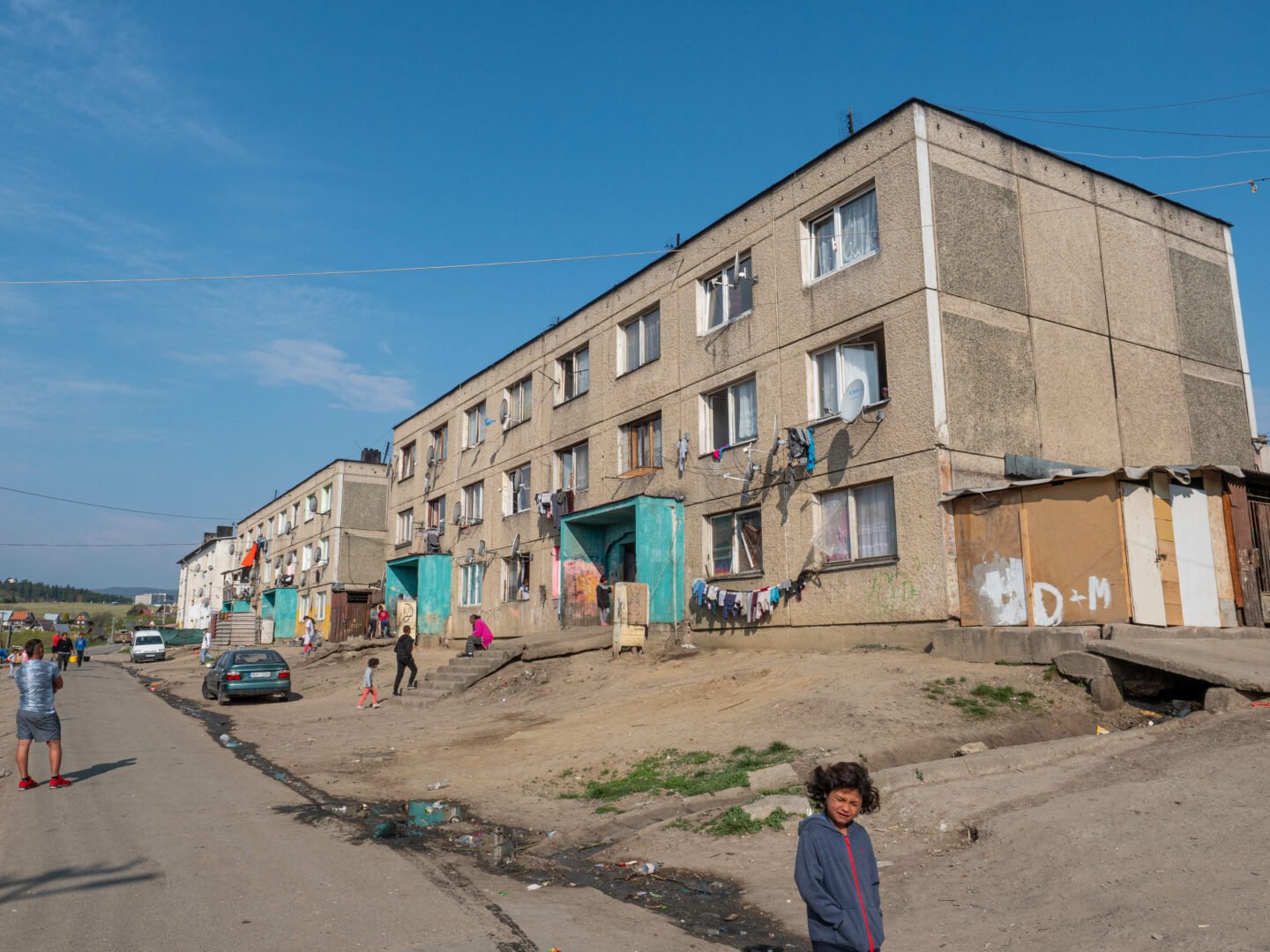
Darina and Helena don’t give up. They explain, ask, shout. Require compliance with the rules. When a group of men working in Czech Republic returned home illegally and without mandatory isolation, Helena called the police to protect the settlement; later she needed police protection as her angry neighbours wanted to attack her for acting against the community.
The “babice” of Zabijanec
Darina and Helena are midwives. In old-fashion Slovak language „babice“. They got special training in the ACEC project and now they can help the women to give birth if they don’t make it to the hospital. They also lecture pregnant women about the right living and show to young mothers how to take care about a baby. Because many Roma from Zabijanec cannot speak Slovak properly, it’s Darina who calls an ambulance if there is a problem.
She also owns the only thermometer in Zabijanec, so is the only one who can discover if someone has temperature.
I was born here in Zabijanec and I love to be active in work for a community. After long years of voluntary work, I was elected as a deputy in Rudnany’s municipal council. And as „babica“, a midwife, I already helped three babies to be born, as the ambulance arrived too late.
In the poor hygienic conditions of Zabijanec, the coronavirus can spread easily. In one household, sometimes twelve people are packed like sardines. „Girls have children at the age of sixteen. Three or four generations then live in one room,” Darina says. Her sons left this place for England: „The town is nice and people don´t discriminate whether your skin is white or dark. There are jobs also for Roma people.” Darina and her husband lived and worked there for several years but had to return when he got health problems.
Better life in communist times
Darina and Helena are in their fifties. They still remember communism when all the people had a job. Back then, the Roma community from Zabijanec had a better life, they say. „People of my generation still remember the normal time. I can understand them better as the younger generation,” Darina explains.
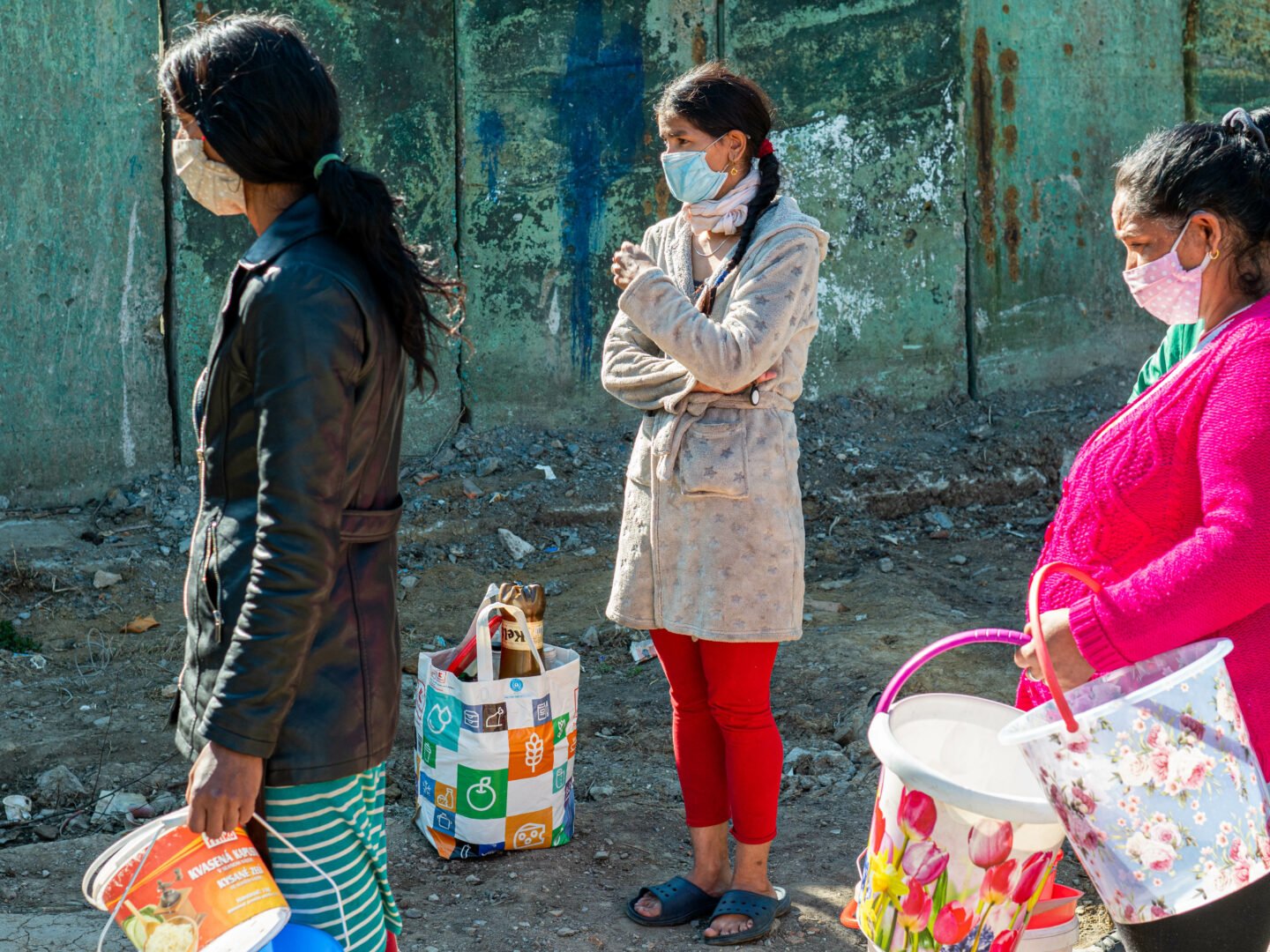
Almost all adults from Zabijanec are unemployed. However, everybody is doing something. Women bring water, cook, wash clothes and hang freshly washed clothes on long ropes just next to the smoking stoves. Men carry wood, hew it, build walls for new huts, wash carpets, repair roofs… It’s hard to believe, that a child born in this place has the same opportunities as the kid born into a middle-class environment.
And now, during the pandemic, the inequality is even worse. Distant online education? Another universe. If any paperwork gets to the pupils, who will help them to learn? Their parents, who hardly finished few years of elementary education are hardly capable of it.
Focus on education
Darina says openly that she finished just elementary school. Her first child came when she was sixteen. „I wanted so much to become a tailor. But there was nobody who would support me. My parents were farmers. They didn’t consider education to be important.“ Now, Darina always says to girls not to get pregnant too soon. „You should focus on education and not destroy your future with early pregnancy,” she explains to them.
Martina Kralovicova works as a nurse at children intensive care unit in hospital in Spisska Nova Ves. Once she heard a father of her little patient saying that he as a tax payer cannot stand that Roma people occupy the hospital beds. „I hope you don´t mind that a Roma nurse will take care about your daughter,” she told him.
She got used to such comments. It started at a medical school. She was the only Roma there. Opposite: when she started working in hospital, Roma people sometimes blamed her for living like a „gadzo“, which means „white“.
Discrimination of Roma in Hrabusice
Many Roma families in Hrabusice, where Martina lives, have a good life. They can build nice new houses. But there is a problem: nobody wants to sell them a parcel in the village. Just in the hill behind the village where the settlement is. No one wants to have a Roma asa neighbour.
Pasta, flour, lentils, tomato purée, tinned strawberries. Simple food packages are a huge help for Roma people living in the segregated settlement in Kojatice. Two hundred men, women and children try to survive the pandemic the best way they can. But how can they follow the hygienic rules when they take water from the river in the forest?
Maria Lichvarova, a community worker of People in Peril, an NGO working in segregated Roma communities, distributes not only food and hygienic stuff but also paper homework for schoolkids. She collects those from last week and transfers it to the teachers.
Simple jobs, low income
The coronavirus pandemic caught Roma communities in their simple huts without water or electricity. Only one family has internet. Most of the houses were built on illegal land. There was a project for building cheap houses in Roma settlements. Clients spared money for a year and then got a loan from a social bank and built their own houses for 12 000 euro.
In Kojatice, one family joined. „How can a family with a monthly income of 108 euro spare the money,“ Maria asks. Like in Zabijanec, most of the adults from Kojatice are unemployed. They live from social benefits of 64 euro per an adult and 20 euro per child. They do simple cleaning works for the municipality and get another 60 euro for it. Families from Kojatice live in such poverty, it is hard to believe in Europe in the 21st century.






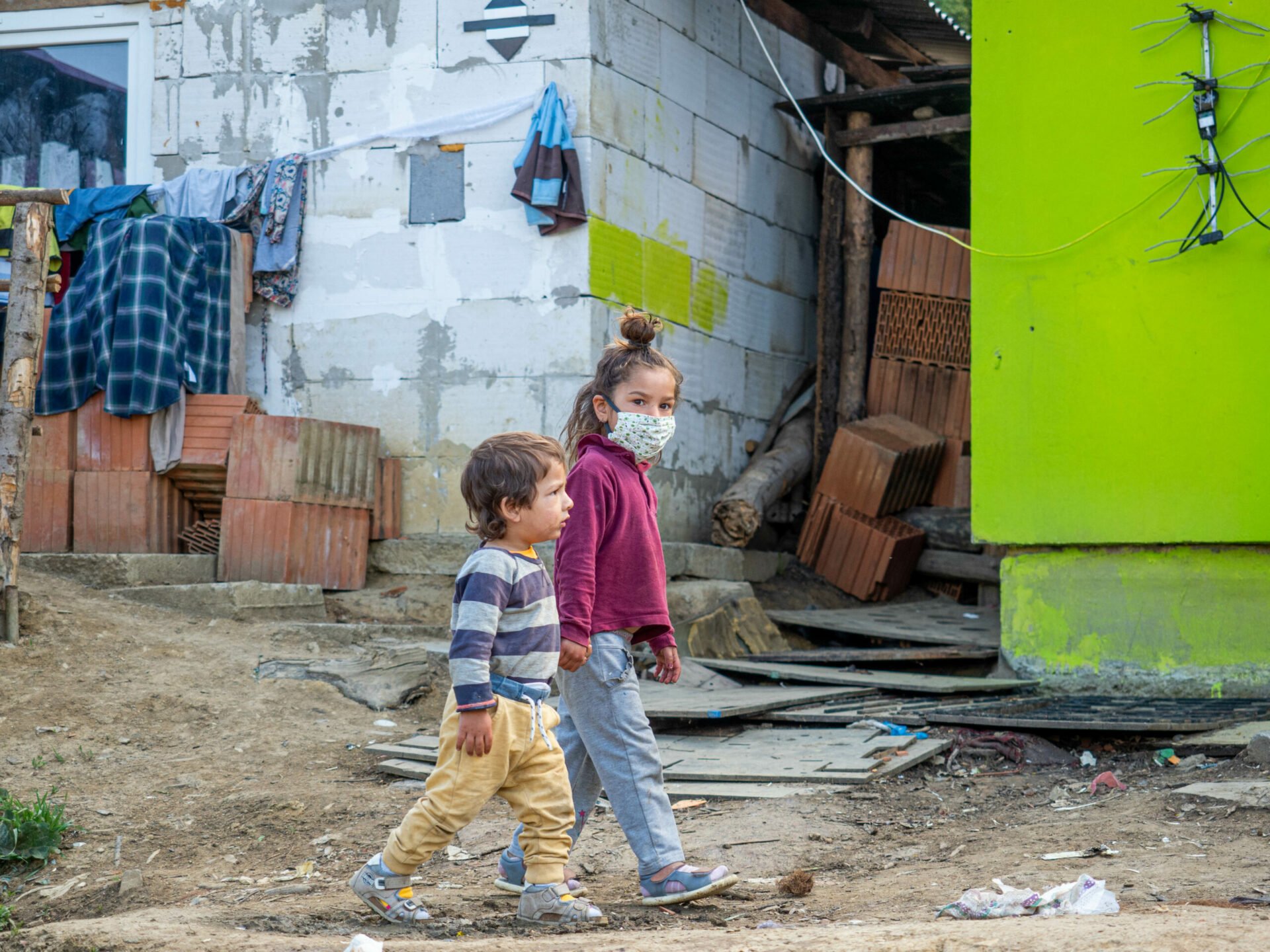


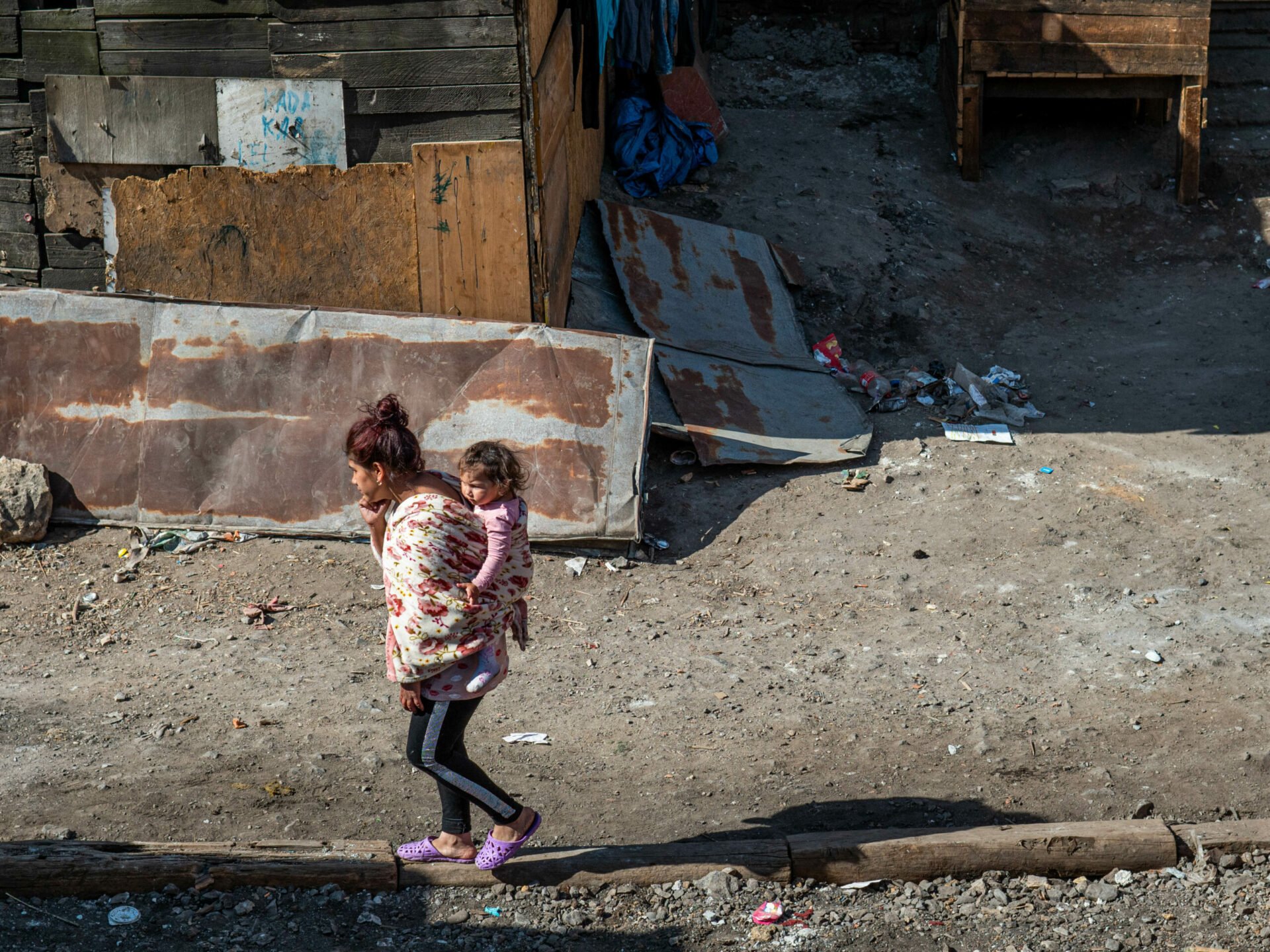
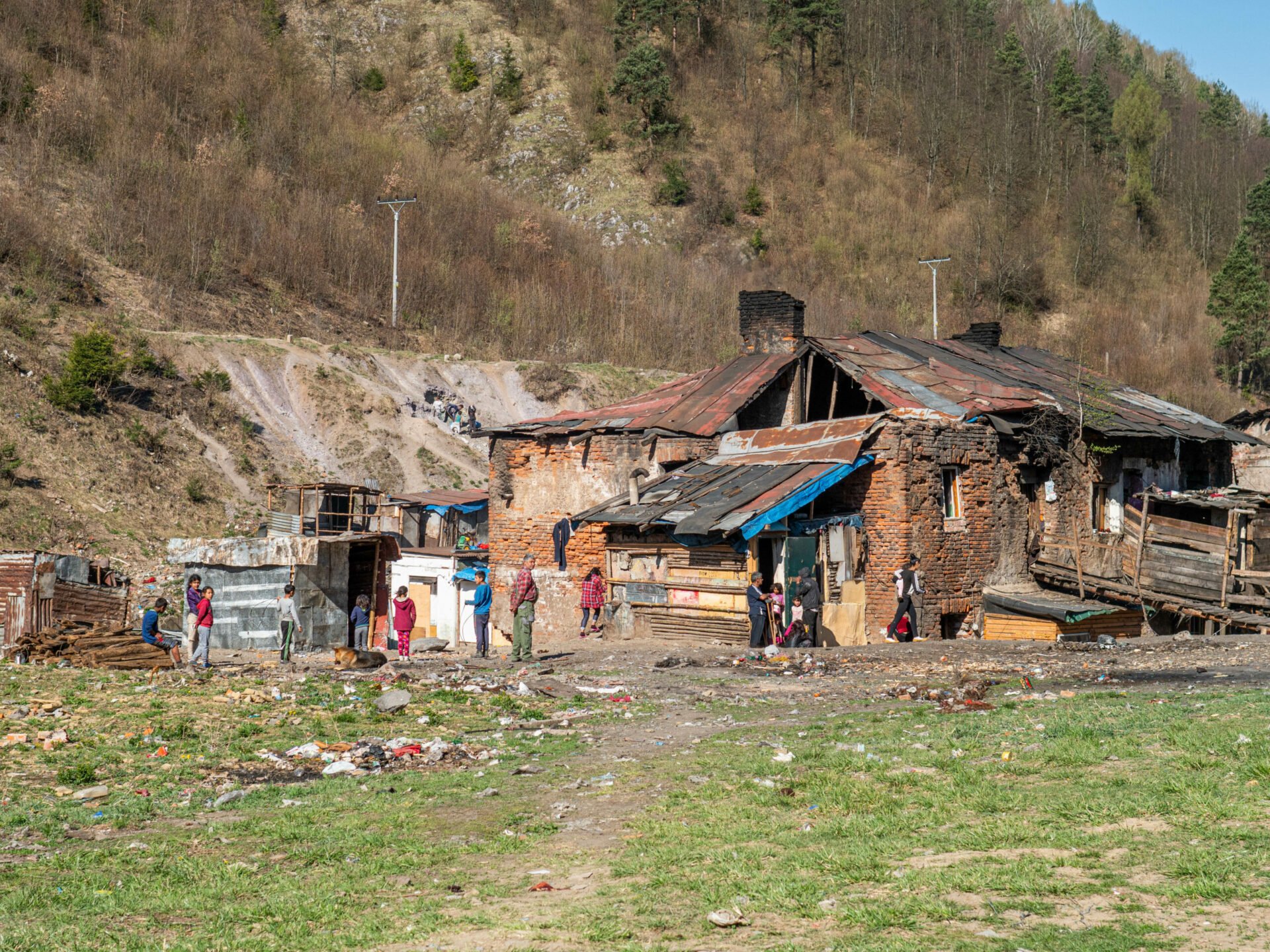
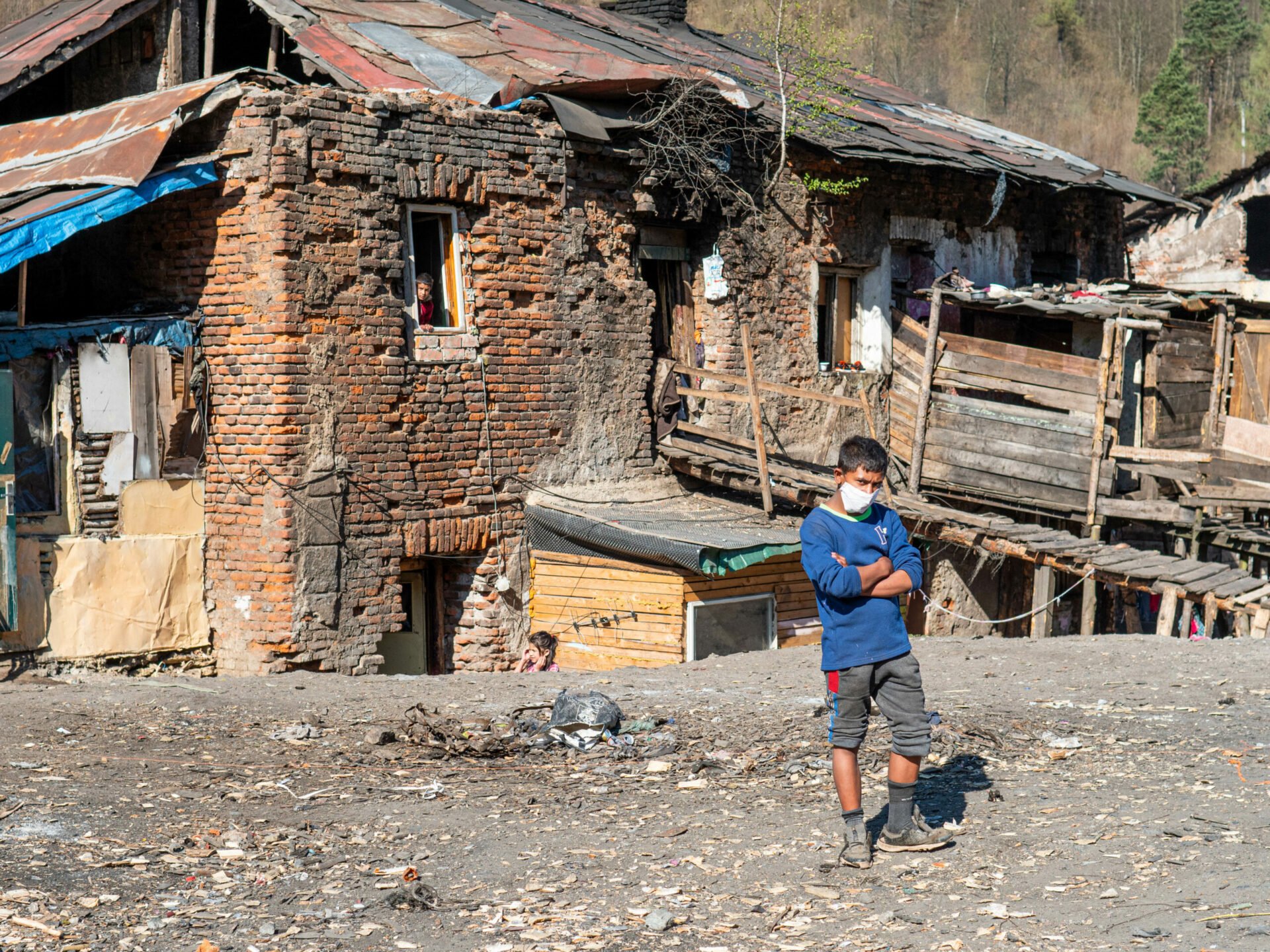
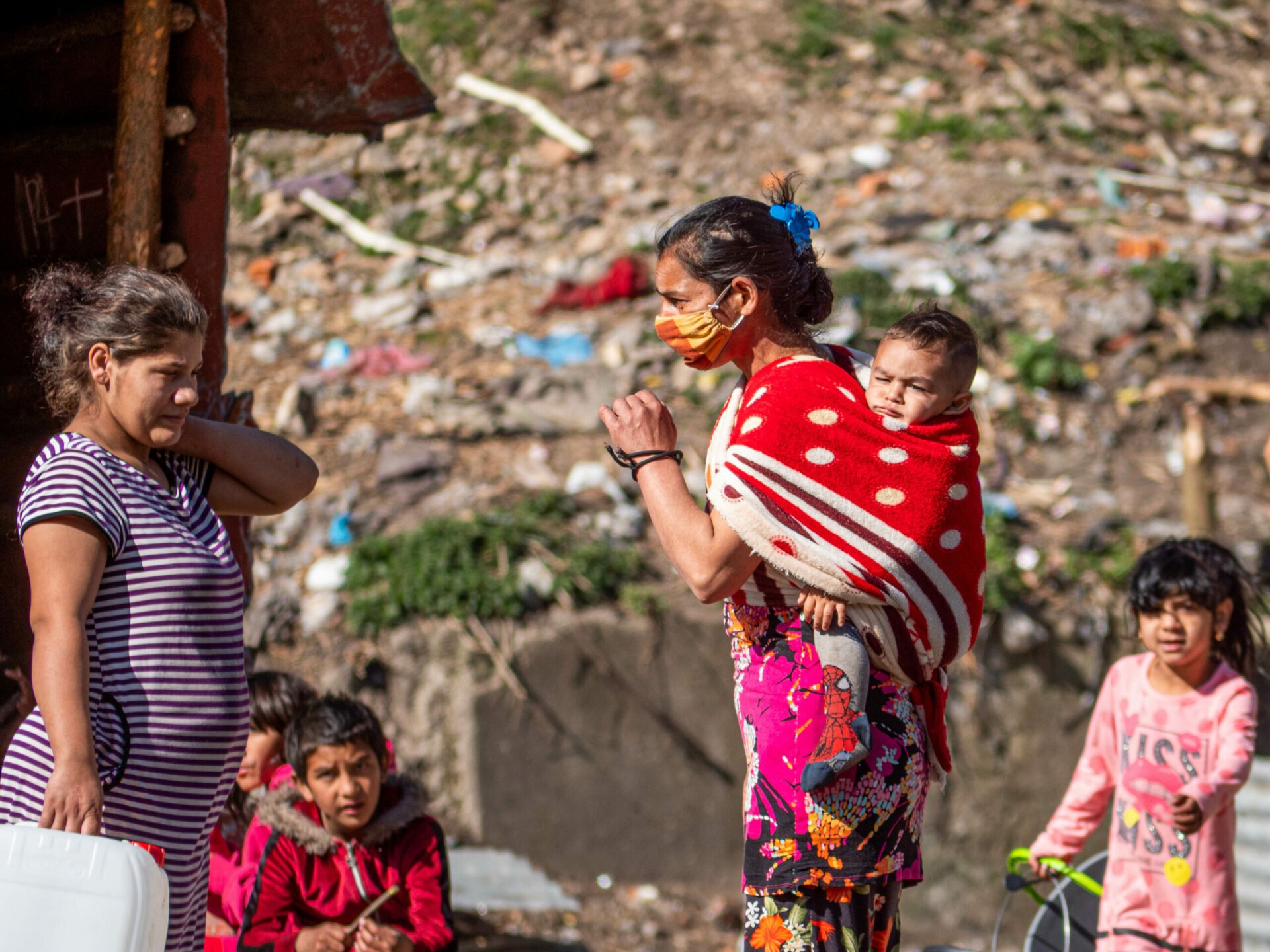







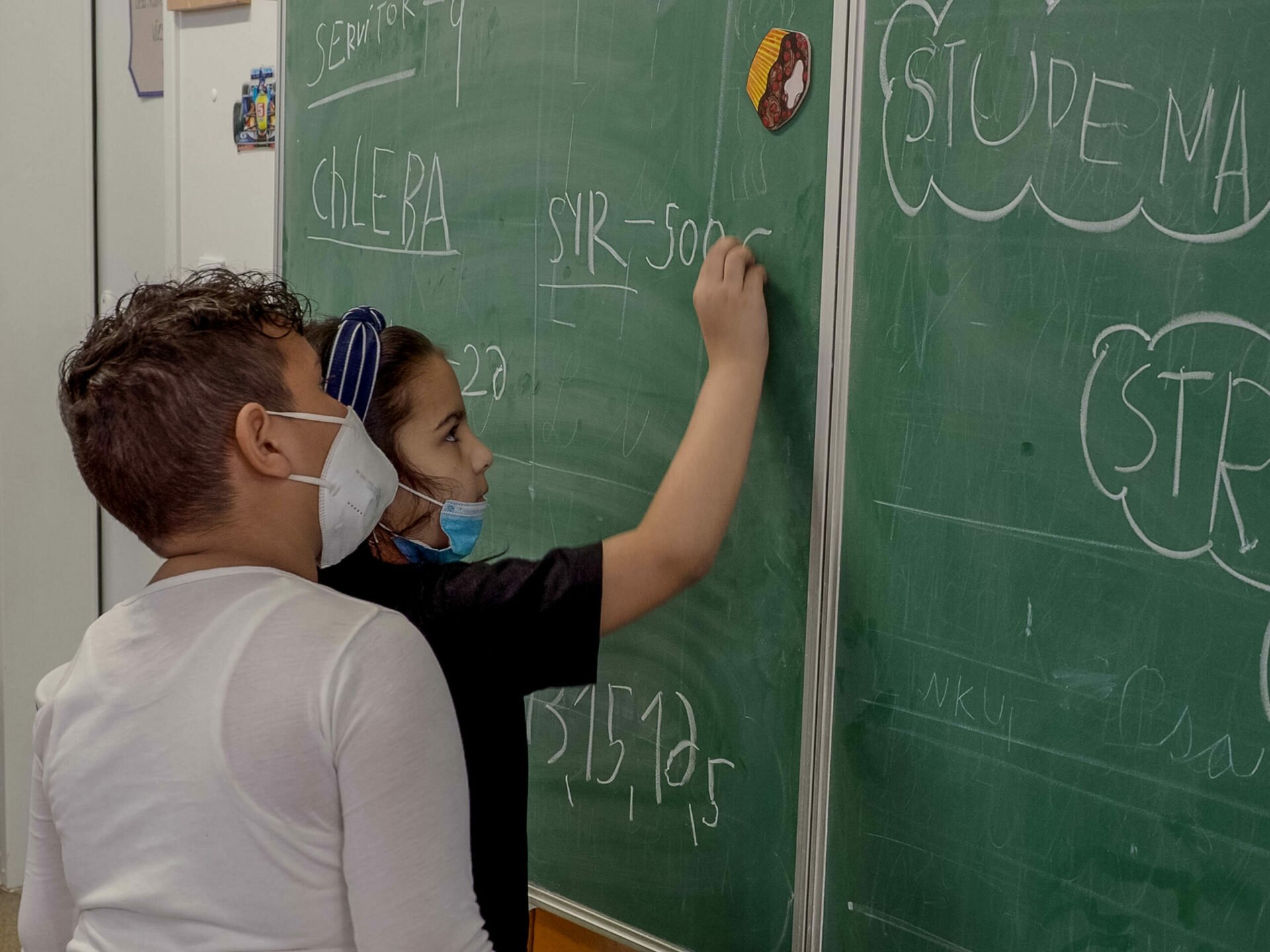




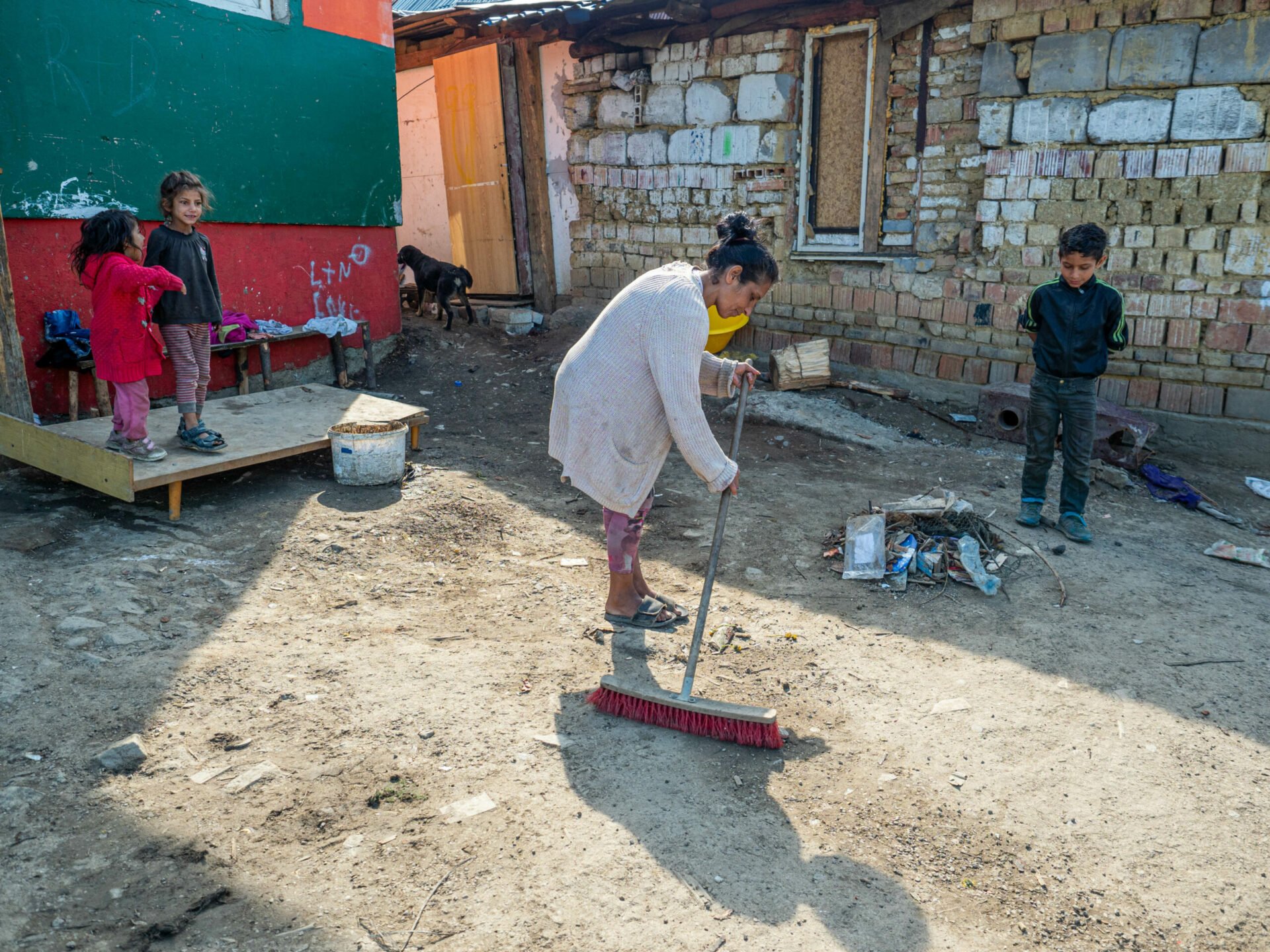







0 Comments